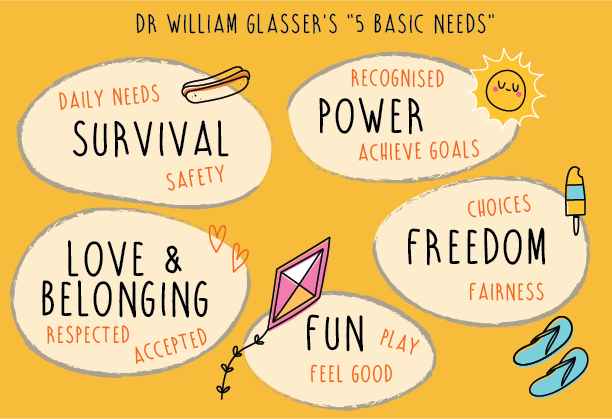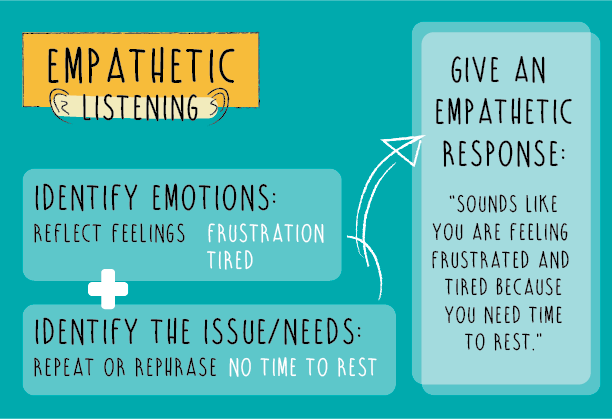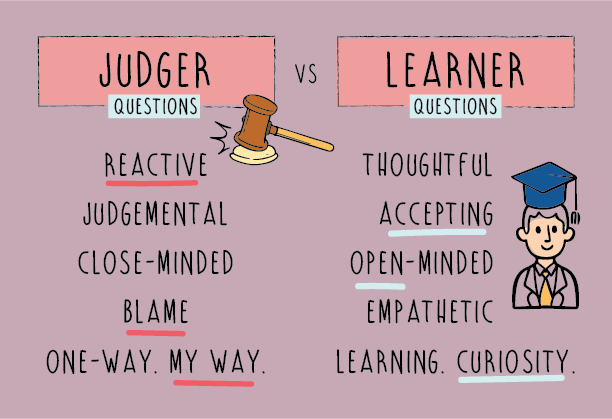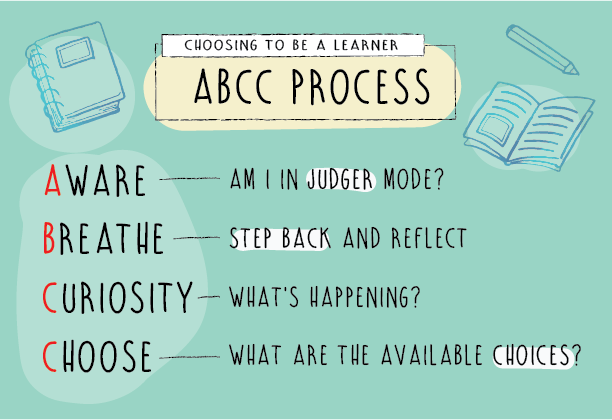Parents Stress Level Exceeding
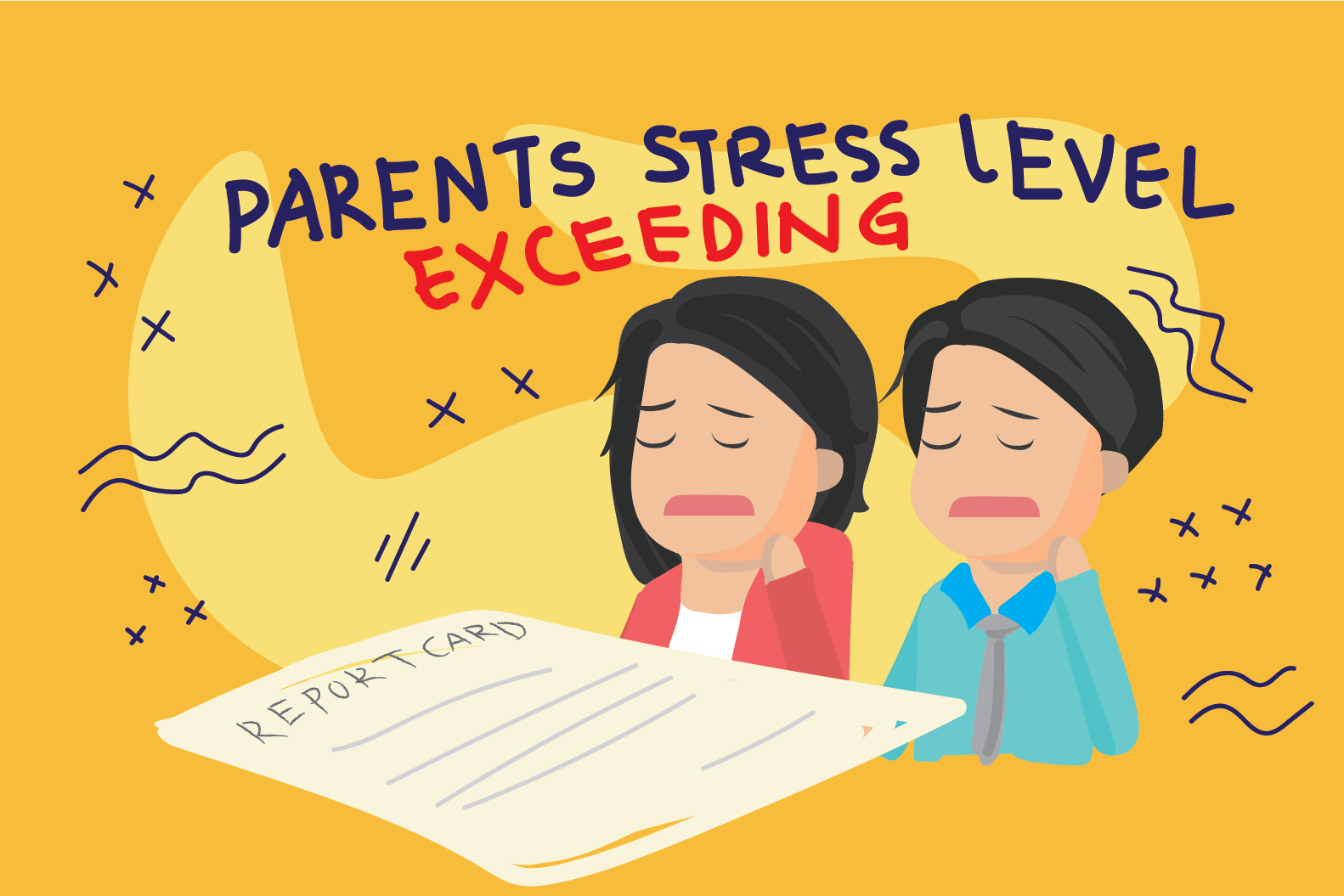
Scenario: You rush home from work, making sure to pack something nice for dinner. Hopefully this would incentivise your son to be more cooperative and study after dinner. You reach home and spot him sprawled on the sofa, fixated on his phone, not even out of his school uniform. Anger wells up. You flare up and scream at him to get into the shower. That?s 30mins less study time for tonight, an unhappy parent, and an unhappy child.
There?s no quick fix for the above scenario. But perhaps the following tips and advice from our P.S.L.E. workshop conducted early this year may help a little. The workshop was conducted by Family Services for the parents of our Student Care Centre Primary 6 students.
Studies have shown that children with healthy emotional family interaction tend to show better academic results. In fact low emotional support, causes poor memory in children.
Therefore, our P.S.L.E. workshop focused on how to manage tension at home and meet the child?s emotional needs.
Managing Tension Part 1
Understanding Everyone?s ?5 Basic Needs?
The ?5 Basic Needs Theory? in a nutshell:
According to William Glasser, all behaviour is purposeful to meet one or more of our basic human needs. Everyone has 5 basic needs. The 5 basic needs are: Survival, Love & Belonging, Power, Freedom and Fun.
With an increasing proportion of dual-income families in Singapore, it can be particularly difficult for working parents to accurately figure out how well we are meeting the needs of our children. Therefore, here are some simple questions you can reflect upon and evaluate if your child?s five basic needs are being met. If your child is old enough, have a conversation with them to find out what he thinks about these questions.
Managing Tension Part 2
Controlling vs Connecting Habits
Connecting habits can help parents to meet their children?s 5 areas of needs. Connecting habits involves empathetic listening. It involves communicating from a learner?s perspective rather than a judge?s perspective.
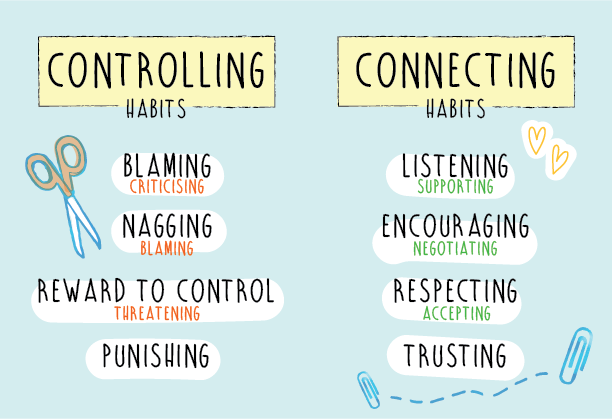
?Controlling Habits? cuts relationships or push people away, whereas ?Connecting Habits? build relationships.
Back to the scenario where the parent comes home from work only to find the child sprawled on the sofa and not even ready for dinner. Perhaps this is the child?s response:
Child: ?Just give me a break! I?m feeling very tired! I?ve only just came back from remedial class a moment ago and want to rest!?
Step 1) Identify the emotions. Most children are able to tell you if they are feeling angry or sad. Help them to communicate their feelings more accurately that you can support your child in their emotional needs.
Step 2) Be AWARE. Are you in the Judger mode or Learner mode when your child shares something? If you are in the judging mode, take a deep breath and step back. Make a choice to be in the learner mode before you speak to the child. Then ask questions. Be curious about what is happening in your child?s life or in school. Perhaps ask about how the remedial class went.
Step 3) Make decisions together with your child to meet their basic need of freedom. Older children need to be given options to create a sense of freedom within boundaries. Negotiate how long he can play on the phone rather than dictate. Maybe he?s tired, he wants an additional 10mins on the game. Settle on
something that is acceptable for both you and your child.
?A Learner Mode? means that you are interested in what is going on in your child?s life. Why are they feeling the way they are. What are they going through?
Practice these 3 steps and remember to make decisions together. As your children grow up, the more you will have to guide them to make right decisions for themselves rather than control them. The degree to which they listen to you will depend on your relationship with them. Build up that relationship, help them cultivate good routines and place values in their hearts.
Bethesda Care Services is located at 300 Bedok North Avenue 3. Our Family Services offers professional casework and counselling services, as well as Welfare Assistance and a myriad of other services and programmes. If you are keen to join BCS as a volunteer, do contact us through our online signup form. For more information, please visit our website or our Facebook page.
Recommended Posts
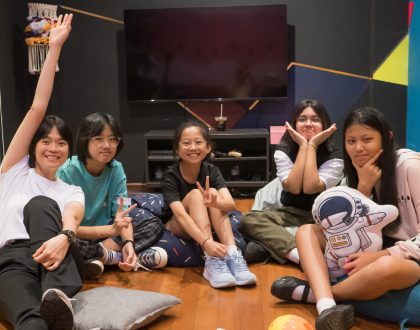
Slay Queens | Youth Conversations about Body Image
October 10, 2023

Making Their Golden Years Shine
January 19, 2022

Helping Youths to Pursue their Aspirations | BCS Bursary Awards
January 05, 2022


